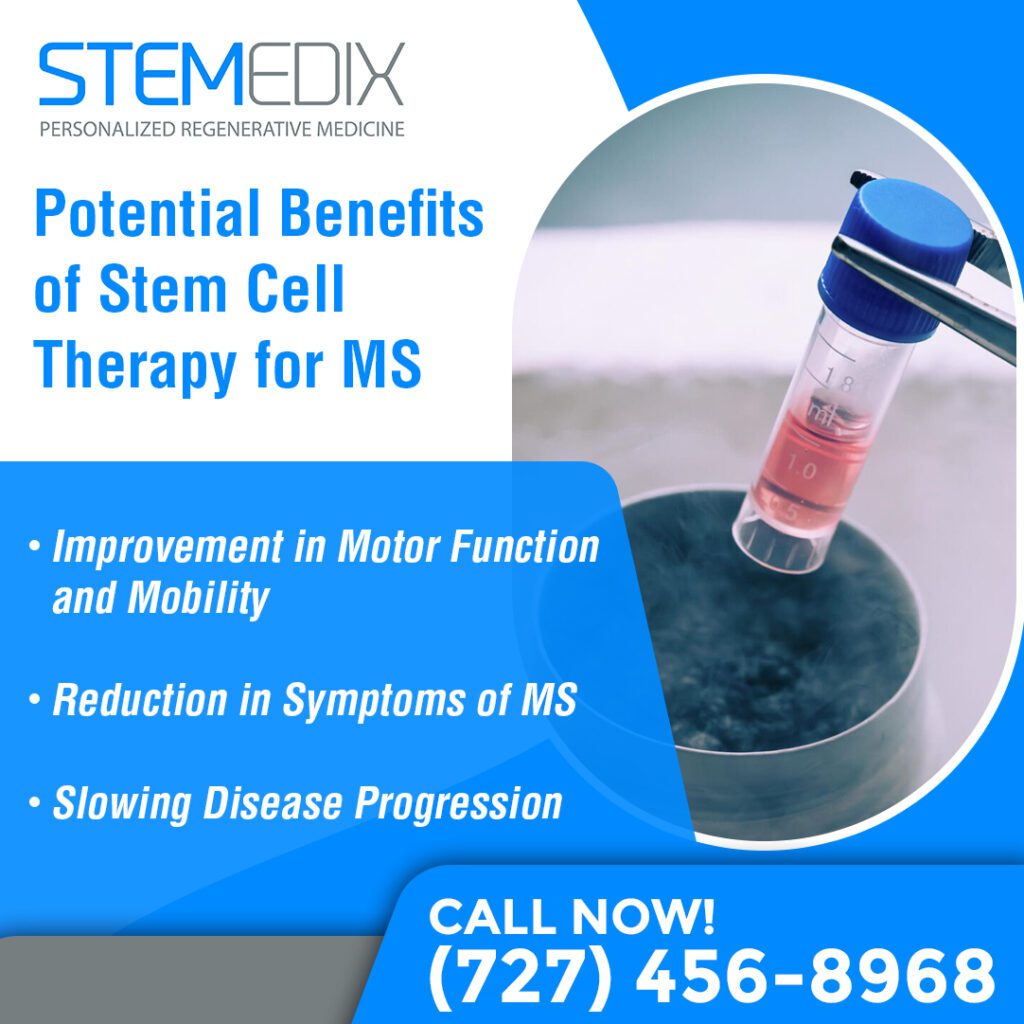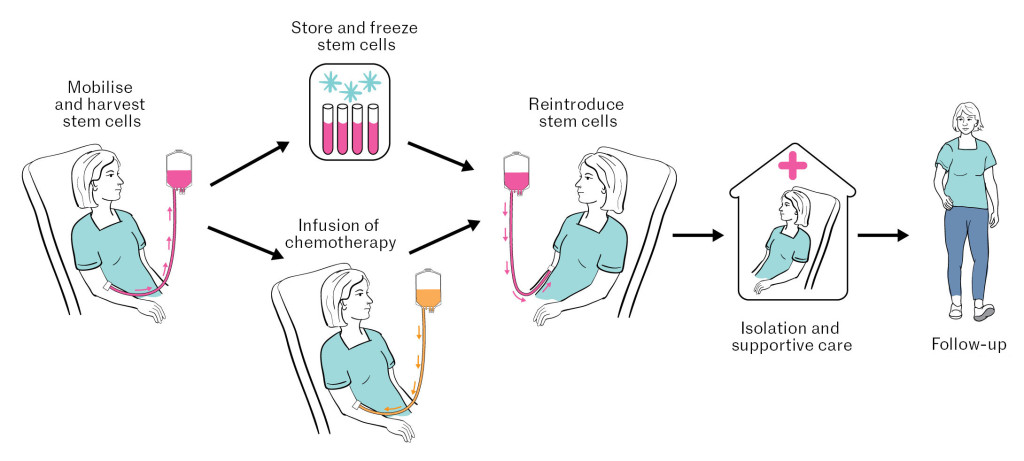7 Simple Techniques For Regenerative Medicine For Multiple Sclerosis
Some Known Facts About Regenerative Medicine For Multiple Sclerosis.
Table of ContentsExamine This Report about Regenerative Medicine For Multiple SclerosisRegenerative Medicine For Multiple Sclerosis for BeginnersRegenerative Medicine For Multiple Sclerosis for DummiesNot known Facts About Regenerative Medicine For Multiple SclerosisRegenerative Medicine For Multiple Sclerosis for DummiesSome Known Facts About Regenerative Medicine For Multiple Sclerosis.Not known Factual Statements About Regenerative Medicine For Multiple Sclerosis
The mesenchymal stem cells transplanted during stem cell treatment can split and grow to create brand-new cells that can fill in the damaged cells of the worried tissue. This may recover neurological features in patients with this condition. These benefits of stem cell therapy are further supported by the capacity of MSCs to advertise healing.Individuals with multiple sclerosis are usually treated with mesenchymal stem cells. These are multipotent stem cells that have the ability to set apart and develop to create a variety of cell types in the body. As soon as transplanted, these stem cells can develop to develop healthy and balanced afferent neuron therefore sustaining the regeneration of the broken tissues of the anxious system.
Once hair transplanted, the stem cells move to areas of swelling or damage within the central nerves (CNS). They are normally attracted to the websites of injury where the immune system is assaulting the myelin sheath, the protective covering of nerve fibers. The stem cells function by promoting the repair work and regrowth of damaged myelin, possibly recovering feature to influenced afferent neuron.
Regenerative Medicine For Multiple Sclerosis for Beginners
Stem Cell Study on MS The National Multiple Sclerosis Culture, along with various other organizations, is actively funding and sustaining study right into mesenchymal stem cell treatment for several sclerosis to discover their possible and enhance therapy methods. The objective is to establish more secure and much more reliable means to make use of stem cells in treating MS.
Getting My Regenerative Medicine For Multiple Sclerosis To Work
Here are below from patients of clients Swiss Medica clinic. The patient traveled from Romania seeking treatment for MS after hearing favorable feedback concerning stem cell therapy for the disease.
Get a complimentary online examination to learn just how stem cells will function for your situation, and what are the period and cost of the treatment. Uccelli, A., Laroni, A., Brundin, L., Clanet, M., Fernandez, O., Nabavi, S. M. Regenerative Medicine for Multiple Sclerosis., Muraro, P. A., Oliveri, R. S., Radue, E. W., Sellner, J., Soelberg Sorensen, P., Sormani, M. P., Wuerfel, J. T., Battaglia, M
Stem cells are cells in the body that can mature into grow cells that serve an offer functionCertain There are 2 primary types of stem cells: embryonic stem cells and grown-up stem cells.
are found in some adult cells and organs consisting of the bone marrow, skin, blood, and brain. Grown-up stem cells are not as versatile as embryonic stem cells and are for that reason much more restricted in regards to the kinds of cells they grow right into. The one-of-a-kind homes of stem cells provide guarantee for brand-new treatments that can slow/halt MS illness task and repair cells damages in the main nerve system.
4 Easy Facts About Regenerative Medicine For Multiple Sclerosis Explained

The treatment includes collecting stem cells from a person's own (autologous) bone marrow. The individual is after that treated with chemotherapy to deplete the immune system and stem cells are reestablished right into the body where they grow into brand-new, healthy immune cells - Regenerative Medicine for Multiple Sclerosis. official statement Stem cells can be infused into the body in different means

In 2000, the MS Culture of Canada and MS Scientific Research study Foundation funded a medical trial entailing HSC transplants, led by Drs. Mark Freedman and Harry Atkins from the Ottawa Medical Facility Research Institute/University of Ottawa. The aHSC treatment readily available in Canada is a therapy that uses high-dose you can try here radiation treatment, also called conditioning.

How Regenerative Medicine For Multiple Sclerosis can Save You Time, Stress, and Money.
Neural stem cells (NSC) are located in the mind and can develop into numerous sorts of mind cells consisting of neurons, oligodendrocytes, and astrocytes. NSCs might offer to fix or secure the brain and regulate the immune system. Early scientific tests in non-human primates demonstrated that therapy with NSCs profited the progression of MS-like disease in animal models.
The results from these safety research studies declare for future stem cell and regenerative medication treatments in MS. Future scientific trials (phase 2 and 3) with larger varieties of individuals and controls are needed to assess the efficacy of this treatment read the article for MS. As shown by the instances above, there is a huge range of study taking area that will certainly offer extra answers concerning the use of stem cells to treat MS.
Stem cell treatment is considered secure, but, like any type of medical treatment, it lugs some threats, such as short-term swelling or pain at the injection site. Nonetheless, major side impacts are uncommon when executed by qualified professionals.
Some Known Questions About Regenerative Medicine For Multiple Sclerosis.
Multiple sclerosis (MS) is a persistent disease of the main nerves that influences the mind and back cable. It is identified by the degradation of myelin, a substance that covers nerve fibers, resulting in interruptions in interaction between the brain et cetera of the body. Signs can differ extensively and include muscular tissue weakness, vision problems, imbalance, and tiredness.
Several sclerosis is defined by the body immune system mistakenly striking the protective sheath (myelin) that covers nerve fibers, causing interaction concerns between the mind and the rest of the body. The disease can bring about the degeneration or long-term damage of nerves. Symptoms vary widely amongst patients and can include tiredness, flexibility problems, pain, and cognitive modifications.